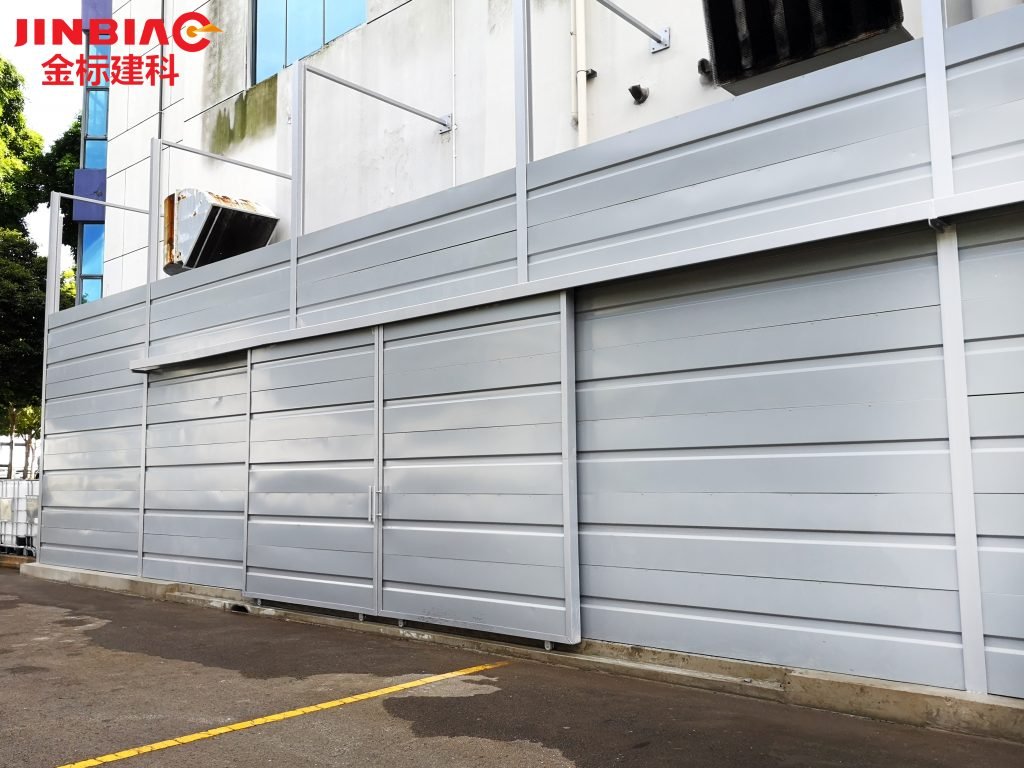Noise barriers are invented to block noise. What do we mean by noise? Sure, we describe it to be a bunch of loud, annoying, and unwanted sounds that we definitely don’t want to hear. But by definition, it is an acoustic event that takes place because of the mingling of non-harmonic vibrations and other unwanted sounds. It is made of soundwaves coming from different sources that cannot be immediately controlled or mitigated.

Acoustic experts describe noise to be harmful to our wellbeing, because it can damage our hearing both temporarily and for the long-term.
Being exposed to noise also has a lot of adverse health effects, which can cause. Among the effects it can do to our health include high blood pressure, trigger anxiety and depression, and give rise to stomach ulcers, among others. Long-term exposure to a noisy environment also makes it difficult for us to communicate effectively. It affects our moods, inciting fear, aggression, and stress. We may also lose our creativity, feel sick and tired, and experience disrupted sleeping patterns because of unwanted noise.
For children, noise can even cause more adverse impact, since children’s body system is not fully developed, which makes them vulnerable towards this harmful factor, especially for the long term.
How sound barriers become useful
You may not always be able to control the noise you hear, but there are ways wherein its effects can be mitigated. You may not be able to turn it off immediately, especially when the unwanted sounds come from different sources far from your reach.
Sound barriers then become useful in addressing these issues. They control the effects of unwanted sound mainly by either absorbing or reflecting soundwaves before these can reach areas they are not supposed to go to.
Sound barriers in Singapore are a common sight in roads and highways, since traffic jams cause a lot of annoying and unwanted sounds. They are also constructed in industrial facilities, like manufacturing plants and factories.
Among the functions of sound barriers in Singapore include:
1. Shielding a dedicated area from bad noise.
Noise barriers are used to prevent the entry of wanted sounds in a designated area. A good example of this is a factory located in a school or church. The sounds plant generators make can distract the activities taking place in the school or church, so these barriers are constructed to prevent the sounds from reaching the said areas.
2. Capturing noise and preventing it from spreading further.
Noise barriers are also used to capture non-harmonious sounds that may reach neighbouring areas.
For instance, if the source of the noise is from within your premises, such as a running generator, you may want to surround it with a barrier to prevent it from being heard by neighbours next-door. Trapping the noise not only reduces its effects to the surrounding environment, but it also promotes respect for privacy to yourself and your neighbours.
3. Sound barriers are used to enclose noise in between mixed-use spaces.
Mixed-use spaces have different acoustic needs and activities. Commercial spaces play music at varying genres and volumes, and so do the areas where events are held. Noise barriers can then help create partitions where sounds from these sources are contained within their premises and not go mingle together in a non-harmonious manner.
Hebei Jinbiao is a leading company in Noise Control products in Singapore. We guarantee to provide you with the most high-quality Noise Control products and reliable assistance. Do not hesitate to contact us. We are looking forward to helping you solve your noise issues and protect you from noise pollution.
